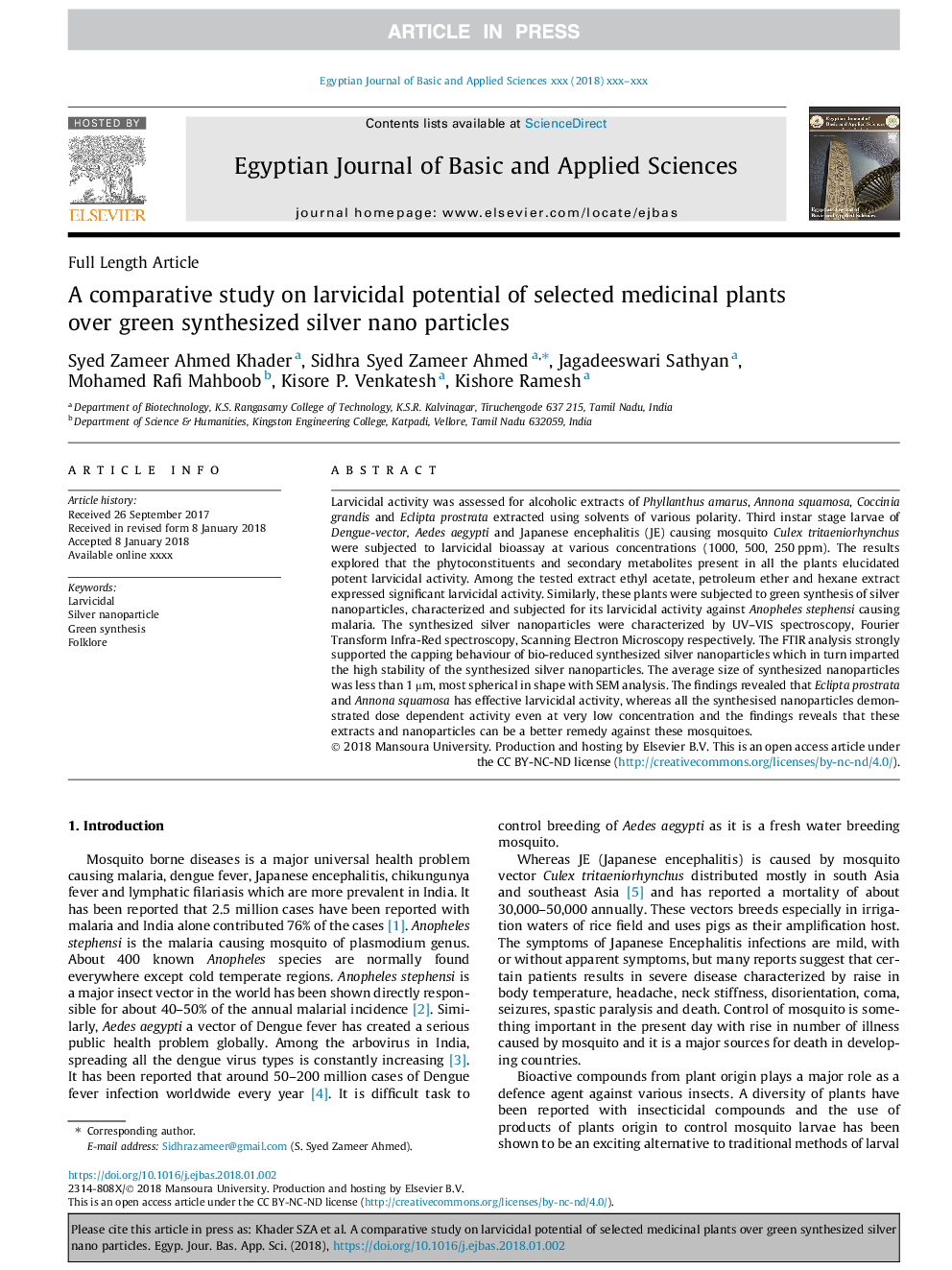| Article ID | Journal | Published Year | Pages | File Type |
|---|---|---|---|---|
| 6952221 | Egyptian Journal of Basic and Applied Sciences | 2018 | 9 Pages |
Abstract
Larvicidal activity was assessed for alcoholic extracts of Phyllanthus amarus, Annona squamosa, Coccinia grandis and Eclipta prostrata extracted using solvents of various polarity. Third instar stage larvae of Dengue-vector, Aedes aegypti and Japanese encephalitis (JE) causing mosquito Culex tritaeniorhynchus were subjected to larvicidal bioassay at various concentrations (1000, 500, 250â¯ppm). The results explored that the phytoconstituents and secondary metabolites present in all the plants elucidated potent larvicidal activity. Among the tested extract ethyl acetate, petroleum ether and hexane extract expressed significant larvicidal activity. Similarly, these plants were subjected to green synthesis of silver nanoparticles, characterized and subjected for its larvicidal activity against Anopheles stephensi causing malaria. The synthesized silver nanoparticles were characterized by UV-VIS spectroscopy, Fourier Transform Infra-Red spectroscopy, Scanning Electron Microscopy respectively. The FTIR analysis strongly supported the capping behaviour of bio-reduced synthesized silver nanoparticles which in turn imparted the high stability of the synthesized silver nanoparticles. The average size of synthesized nanoparticles was less than 1â¯Âµm, most spherical in shape with SEM analysis. The findings revealed that Eclipta prostrata and Annona squamosa has effective larvicidal activity, whereas all the synthesised nanoparticles demonstrated dose dependent activity even at very low concentration and the findings reveals that these extracts and nanoparticles can be a better remedy against these mosquitoes.
Related Topics
Physical Sciences and Engineering
Computer Science
Signal Processing
Authors
Syed Zameer Ahmed Khader, Sidhra Syed Zameer Ahmed, Jagadeeswari Sathyan, Mohamed Rafi Mahboob, Kisore P. Venkatesh, Kishore Ramesh,
